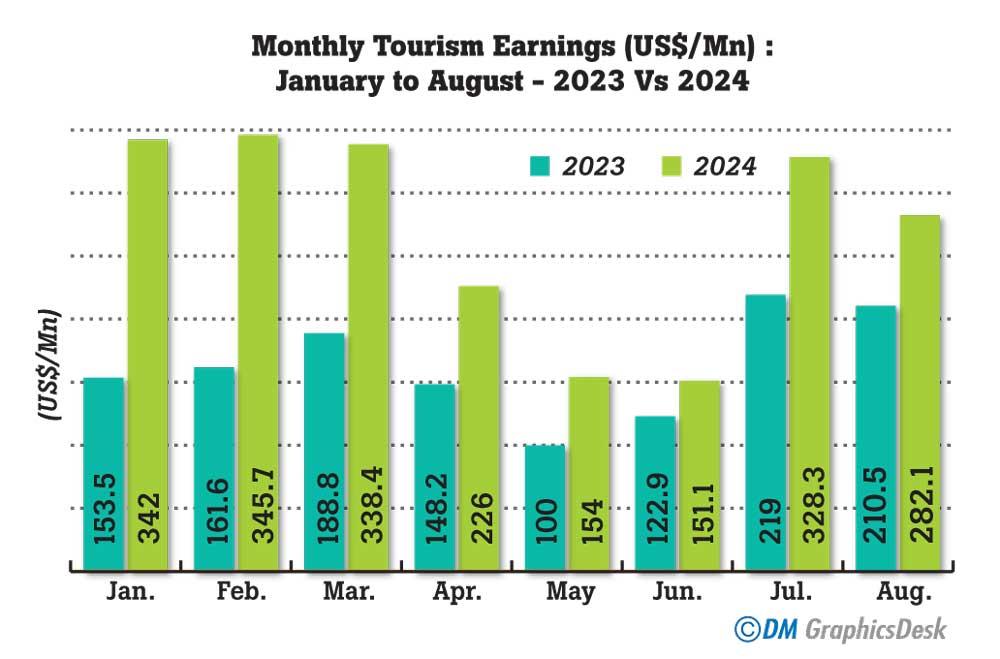09 Sep 2024 - {{hitsCtrl.values.hits}}

Earnings from tourism have climbed in August and so were the arrivals, although not quite up to the level targeted by authorities.
The tourism trade, Sri Lanka’s third largest foreign currency income earner after remittances and apparel, reported an income of US$ 282.1 million in August, up from the US$ 210.5 million in the same month in 2023 but down from the US$ 328.3 million in July.
In August, Sri Lanka received 164,609 visitors, which was up from the 136,405 in the same month a year ago but down from 187,810 in July.
The August earnings bring the cumulative seven months earnings from the trade to US$ 2,167.0 million, up 66.1 percent from the corresponding period in 2023.
The government last week brought forward for its immediate implementation their earlier decision to offer visa free travel for 38 countries, a programme which they refer to as the, ‘one chop’ system.
The system which is likened to what Singapore does, is a more streamlined process of issuing visa or a visa extension with just one official stamp or seal on the applicant’s passport.
Earlier it was decided to offer the same facility for 35 countries, effective from October 1.
The decision is aimed at further easing travel to Sri Lanka from those who are interested and thereby lure more visitors to the country as Sri Lanka aims more foreign inflows from the tourism trade.
In the first five days in September, Sri Lanka has welcomed 21,073 visitors and for the month, and India led the pack. At its peak, Sri Lanka welcomed 2.3 million tourists earning US$ 4.4 billion in 2018 before the Easter Attacks and the pandemic decimated the prospects.
Sri Lanka aims close to a similar number of travellers in 2024 and to earn around US$ 3.5 billion by the year end.
Tourism, together with remittances act as a significant buffer to Sri Lanka’s external sector and thereby the broader economy. The weakening of the two caused economic hardships in 2022 which was prolonged by the subsequent reforms necessitated by the International Monetary Fund programme.
25 Nov 2024 21 minute ago
25 Nov 2024 33 minute ago
25 Nov 2024 35 minute ago
25 Nov 2024 36 minute ago
25 Nov 2024 44 minute ago